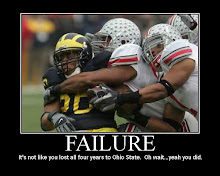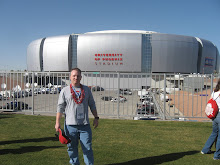It seems to me that draft picks are more over-valued now than at anytime in my 40+ years of following professional football. When that happened for the NFL as a whole, I can't say for sure, but I think this might have had something to do with it. For the Vikings, it came sometime after the trade for this man. Now that Matt Cassel has been franchised by the New England Patriots, it seems that at a minimum, the Vikings will have to give up a first round draft pick. If they go the traditional route of the non-exclusive franchise tag, they can sign him to an offer sheet and give up two first round picks, or maybe they can do a sign and trade and negotiate and give up something less. I doubt the Vikings want to go three years without a first round draft pick; long term that's not a smart play. But let's say they get some deal worked out that involves this year's first round draft pick, would that be worth it?
To answer that question, I asked a couple of other questions. If the Vikings did trade a first round pick for Cassel, how long would I expect him to be wearing purple? He'll be 27 for the 2009 season, and realistically, most players start dropping off due to injury or ability at about age 33, give or take. So I should reasonably expect 6 years of productive service. What's productive service? Well, since it's hard to quantify when comparing players at different positions, let's call it starting over 66% of the games your team played, just as a starting point. First round draft picks are expected, in this day and age, to come in and start right away, and guys tyou give up for a first round draft choice are as well, so I think 2/3 of the games started over a six year period is reasonable. I then looked at the draft slot of the Vikings in the 2009 first round, which is pick number 22, and looked at every first round player drafted from 2000-2004 at spot 22 or later and determined how many years they stayed with the team that drafted them, how many games they started, and whether or not there were any Pro Bowl appearances. I have completely disregarded salaries for these players, because really, how does that matter? There are always 53 players on a team every year, and every team is under the cap. Does it matter if we think someone gets overpaid? (That was a rhetorical question...it doesn't).
Between 2000-2004, there were only 53 total picks taken from spot 22-31 or spot 22-32 ('00-'01 had only 31 teams). Of those 53 picks, the average time spent with their original team was 4.7 years. 49%, or 26 of those picks, could be considered starters or guys that gave productive service. 10 of those players, or 18%, made All-Pro with the team that drafted them. So realistically, you can trade that draft pick, and you've got a 50-50 shot of the guy even panning out, and chances are if he does pan out he won't be around for more than five years. If you're really lucky, you'll find a diamond in the rough that will develop into a Pro Bowl caliber player.
So what does this mean? Well, primarily, it means I killed a lot of time doing this research when I could have been doing something productive. But for the four of you that look to this as your football salvation, I think it means that you make the trade. If you really think that this guy is the missing piece, and immediately upgrades your team, do it. If you don't, at best, you've got a 50-50 shot of getting the right guy regardless of position, and other than Matt Ryan or Joe Flacco, quarterbacks aren't first year salvations.
That said, you can't do another Herschel deal. Two first round draft picks is very steep, and will impact the Vikings being able to replenish the roster with quality athletes. As much as a trade for a quality player helps a team, the majority of your team roster is still filled by the draft, so if you keep doing these type of deals, somewhere along the line you get to a point of diminishing returns. The Jared Allen deal was steep, it was worth it, but you can't do an Allen deal three or four years in a row. It was, for the most part, a one year impact, with the exception of a third round pick in this upcoming draft. Allen lead the NFL in sacks, and his added pressure helped cut the defense pass yards allowed from 31 overall to 18 overall. Could that kind of production come from a guy at the lower end of round one? Maybe, but as even as good as Childress, Spielman, and Studwell have been, that would be a long shot. Can you trade off two more first round picks? I don't think so, but another Allen type trade is very doable, in my estimation.
Just don't let Mike Lynn negotiate the deal.
Monday, February 9, 2009
Subscribe to:
Post Comments (Atom)



Here's a question...
ReplyDeleteWould those two first round draft picks be better spent either drafting or being used to trade for better starting offensive linemen (plural, as in 2) and keeping Tarvaris the starter?
It has been said that Matt Cassell is the product of the system he plays in and that he has a much better offensive line and better receivers. The only way to truly compare Cassell to Jackson would be to have them play the same system behind the same line and with the same receivers but that cannot be done. But if the Vikings upgraded their O line and receivers would that be more cost effective than gambling on a system QB that might not make the transition to Chilly ball?
A better line would make all aspects of the offense better, and do it more consistently for a longer period of time. If you are going to spend the first round choices for the next two years, spend them on good starting offensive lineman that will open more holes for Adrian and give TJ more time to see open receivers down field.
We don't owe Kansas City a 3rd round pick in this year's draft. We had two 3rd rounders last year from a previous trade so we traded those picks and our 1st for Allen.
ReplyDeleteYou're absolutely right, Darren, thanks for the clarification. Luft, I say no. You don't need that much help on the line to begin with, and I wouldn't trade two first round draft picks unless you start talking Tom Brady/Peyton Manning type players.
ReplyDelete